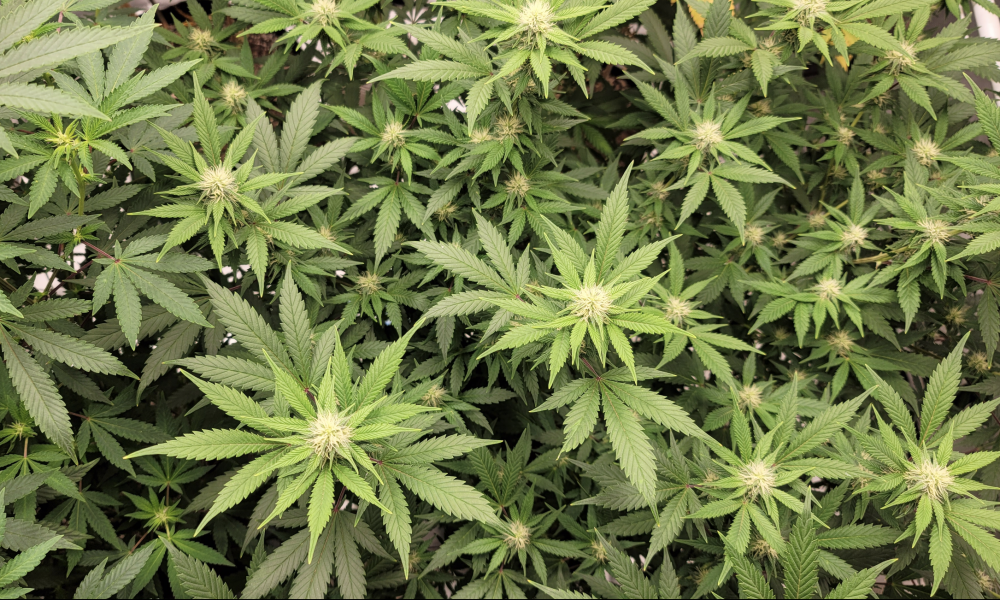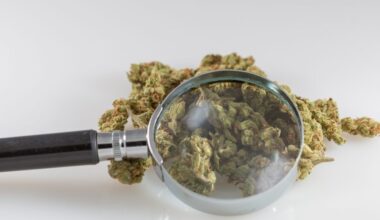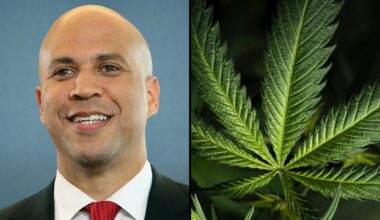An influential U.S. Senate committee on Wednesday voted to advance funding legislation and attached report language that encourages the federal government to reconsider “arbitrary” THC restrictions on hemp and continue efforts to develop a regulatory pathway for CBD products.
Those provisions, among others, were approved by the Senate Appropriations Committee as part of legislation to fund the U.S. Department of Agriculture (USDA), Food and Drug Administration (FDA) and other federal agencies for Fiscal Year 2022.
The legislation would also continue a rider that protects state hemp programs from federal interference and extend the terms of an earlier pilot program under which some U.S. states began cultivating the plant for CBD and other uses.
Here’s a look at the cannabis-related provisions approved by the panel, several of which are similar to measures that advanced though the House last month:
Senators took issue with the 2018 Farm Bill’s 0.3 percent THC cap for lawful hemp products and directed USDA to work with the other federal agencies on a study of whether that threshold is scientifically supported:
“Hemp.—The Committee is concerned that the level of allowable THC content in hemp may be arbitrary and pose a burden on hemp producers that is not supported by scientific evidence. The Committee directs USDA to work with the Department of Health and Human Services and the Drug Enforcement Administration to study and report to Congress on whether there is scientific basis for the current limit of 3 percent THC in hemp and suggest alternative levels if necessary.”
(The report language misstates the current 0.3 percent THC threshold as 3 percent.)
The report also pushes FDA to continue developing regulations to allow CBD products and, in the meantime, to issue a policy of enforcement discretion for such products:
“Cannabis and Cannabis Derivatives.—The Committee notes that budget did not request additional resources for Cannabis and Cannabis Derivatives activities, and therefore directs the FDA to maintain funding levels to support regulatory activities, including developing policy, and for the FDA to continue to perform its existing regulatory responsibilities, including review of product applications, inspections, enforcement, and targeted research for cannabis-derived substances, such as cannabidiol [CBD]. Within 90 days of enactment of this Act, the FDA shall issue a policy of enforcement discretion with regard to certain products containing CBD meeting the definition of hemp as defined by section 297A of the Agricultural Marketing Act of 1964 (7 U.S.C. 1639). Such enforcement discretion shall be in effect until the FDA establishes a process for stakeholders to notify the FDA of use of CBD in products that include safety studies for intended use per product and 112 makes a determination about such product. In addition, the FDA is encouraged to consider existing and ongoing medical research related to CBD that is being undertaken pursuant to an Investigational New Drug application in the development of a regulatory pathway for CBD in products under the jurisdiction of the FDA and to ensure that any future regulatory activity does not discourage the development of new drugs. The Committee also encourages the FDA to partner with an academic institution to expand sampling studies of CBD products currently on the market.”
The Appropriations Committee further wants to make sure that hemp farmers and businesses are eligible to participate in insurance and loan programs that are available to operators in other sectors of the economy:
“The Committee is concerned that producers of high value, horticultural hemp are being prevented from accessing USDA programs designed for specialty crops, including the Specialty Crop Block Grants and crop insurance. Within 90 days of enactment of this Act, the Committee directs the Secretary to establish a dual designation for hemp as a specialty crop based on the manner and purpose for which it is grown.”
…
“Hemp-Based Products.—The Committee recognizes the growing interest for U.S. hemp and hemp-based products for a variety of uses and directs FCA to work with the institutions under its jurisdiction to provide access to guaranteed loans for hemp producers and businesses.”
As in the House version of the legislation, the Senate bill includes a provision that would prevent federal money from being spent to interfere with implementation of state hemp programs. It also extends a 2014 hemp pilot program, under which some states began cultivating hemp prior to federal legalization under the 2018 Farm Bill:
“SEC. 741. None of the funds made available by this Act or any other Act may be used—
(1) in contravention of section 7606 of the Agricultural Act of 2014 (7 U.S.C. 5940), subtitle G of the Agricultural Marketing Act of 1946, or section 10114 of the Agriculture Improvement Act of 2018; or
(2) to prohibit the transportation, processing, sale, or use of hemp, or seeds of such plant, that is grown or cultivated in accordance with subsection section 7606 of the Agricultural Act of 2014 or Subtitle G of the Agricultural Marketing Act of 1946, within or outside the State in which the hemp is grown or cultivated.”
…
“SEC. 760. Section 7605(b) of the Agriculture Improvement Act of 2018 (7 U.S.C. 5940 note; Public Law 115–334) is amended by striking ‘January 1, 2022’ and inserting ‘January 1, 2023.’”
Senators also encouraged USDA’s Agricultural Research Service (ARS) to work on hemp cultivar and germplasm development:
“Hemp Cultivar Development.—The Committee encourages ARS to conduct biotechnology and genomics research in collaboration with capable institutions to elucidate the genetic control of key production and product quality traits in hemp to facilitate cultivar development. In addition, the Committee provides $2,500,000 for ARS to partner with institutions already engaged in such research to conduct hemp genetic improvement research and breeding with new breeding and editing techniques.”
“Hemp Germplasm.—The Committee recognizes the increasing demand for hemp for a variety of uses and its growing importance as a crop for U.S. farmers. When the Nation’s hemp germplasm was destroyed in the 1980s, researchers lost access to publicly available germplasm for plant breeding purposes. The Committee directs ARS to establish and maintain a hemp germplasm repository at the Plant Genetics Resources Research Unit and provides no less than the fiscal year 2021 level for this purpose. The Committee also encourages ARS and the Plant Genetics Resources Research Unit to partner with 1890 institutions that have existing institutional capacity on hemp germplasm research, education, and extension capabilities.”
The report additionally recognizes the “emerging market potential for U.S. hemp and hemp-based products for a variety of uses” and pushes USDA to conduct research and outreach on integrating the crop into existing markets:
“Hemp Production Systems.—The Committee recognizes the emerging market potential for U.S. hemp and hemp-based products for a variety of uses. The Committee directs ARS to conduct regionally-driven research, development, and stakeholder engagement to improve agronomic and agro-economic understanding of effectively integrating hemp into existing agricultural cropping, processing, and marketing systems. The Committee provides no less than the fiscal year 2021 level for this purpose. Research, engagement, and technology transfer shall be conducted in strict accordance with all applicable Federal and State authorities and regulations.”
Finally, the panel included hemp production in a list of areas on which it does not want federal officials to impose new user fees:
“Proposed User Fees.—The Committee continues to reject past proposals to administratively implement new user fees to cover the government’s full cost for providing services to certain beneficiaries, including licenses for…domestic hemp production… The Committee strongly believes that USDA should not propose new user fees without taking into account the full impact on farmers, ranchers, and beneficiaries who would be forced to contend with rapid changes in these programs and additional burdensome costs without prior notice.”
Also on Wednesday, the Appropriation Committee approved a spending bill for the U.S. Department of Veterans Affairs (VA), which includes a new amendment to allow VA doctors to issue cannabis recommendations in legal states.
The House, for its part, has attached a number of cannabis and drug policy provisions to appropriations bills this year. Those measures would provide protections for banks that work with state-legal cannabis businesses, allow the legalization of marijuana sales in Washington, D.C., criticize restrictive hemp regulations, encourage CBD to be allowed in foods, urge expanded research psychedelics and recognize the value of safe consumption sites for illegal drugs, among other reforms.
Another House amendment, yet to be voted on, would expand a current rider that protects state medical cannabis laws from Justice Department interference to cover all state and tribal marijuana laws—including those that allow recreational use and sales.
Federal Agency Loosens Marijuana-Related Grant Funding Restrictions For Mental Health Treatment
Photo courtesy of Mike Latimer
Medical Disclaimer:
The information provided in these blog posts is intended for general informational and educational purposes only. It is not a substitute for professional medical advice, diagnosis, or treatment. Always seek the advice of your physician or other qualified healthcare provider with any questions you may have regarding a medical condition. The use of any information provided in these blog posts is solely at your own risk. The authors and the website do not recommend or endorse any specific products, treatments, or procedures mentioned. Reliance on any information in these blog posts is solely at your own discretion.






